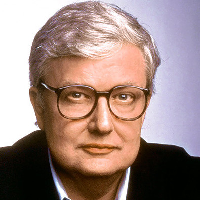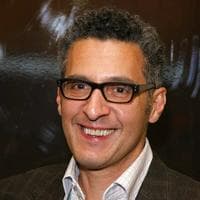Roger Ebert mbti kişilik türü
Kişilik
"Roger Ebert hangi kişilik türü? Roger Ebert, MBTI, 6w5 - SO1 - 641 'de ENFP kişilik türüdür, SCOEI, SCOEI, büyük 5, LSE' dır."
“Here is how life is supposed to work. We come out of ourselves and unfold into the world. We try to realize our desires. We fold back into ourselves, and then we die. […] Here is how it happens. We find something we want to do, if we are lucky, or something we need to do, if we are like most people. We use it as a way to obtain food, shelter, clothing, mates, comfort, a first folio of Shakespeare, model airplanes, American Girl dolls, a handful of rice, sex, solitude, a trip to Venice, Nikes, drinking water, plastic surgery, child care, dogs, medicine, education, cars, spiritual solace -- whatever we think we need. To do this, we enact the role we call "me," trying to brand ourselves as a person who can and should obtain these things. In the process, we place the people in our lives into compartments and define how they should behave to our advantage. Because we cannot force them to follow our desires, we deal with projections of them created in our minds. But they will be contrary and have wills of their own. Eventually new projections of us are dealing with new projections of them. Sometimes versions of ourselves disagree. We succumb to temptation -- but, oh, father, what else was I gonna do? I feel like hell. I repent. I'll do it again.” —Roger Ebert’s review of ‘Synecdoche, New York’ Ain’t no way an ESTJ wrote that. Having read his reviews for years, I could’ve chosen countless other examples of his high Ne and Fi. Here’s one: he was underwhelmed by ‘The Matrix’ because it didn’t more deeply explore its “intriguing” philosophical premise. (And I agree!) His ESTJ-like TV appearance is understandable but very misleading. His defining trait as a critic was his relentless curiosity, backed up by a strong, humanistic sense of empathy and morality. He was generous towards more movies than not, and when he really loathed a film, it was usually due to some moral objection (as with ‘North’, ‘Kick A$$’, ‘Caligula’, or to a lesser extent, ‘A Clockwork Orange’). His written reviews stand out because of their ability to translate very complex philosophical ideas for the masses. He knew how to appreciate lowbrow pulp, of course, but if a movie had any philosophical bent, it was always the first thing he’d latch onto. He was an ENFP who knew how to communicate with all people, S-types and N-types alike. Read enough of his work and you’ll find that his Ne and Fi are WAY stronger than his Te or Si. (My second guess would be ENFJ, if it wasn’t for his love of alternatives and playful analogies.)
Biyografi
Roger Joseph Ebert (June 18, 1942 – April 4, 2013) was an American film critic, historian, journalist, screenwriter, and author. He was a film critic for the Chicago Sun-Times from 1967 until his death in 2013. In 1975, Ebert became the first film critic to win the Pulitzer Prize for Criticism.
Kişilik correlate

Abby Lee Miller

Ellen DeGeneres

Jimmy Fallon

Conan O'Brien

Judge Judy

Oprah Winfrey

Phil McGraw (Dr. Phil)

Danilo Gentili







